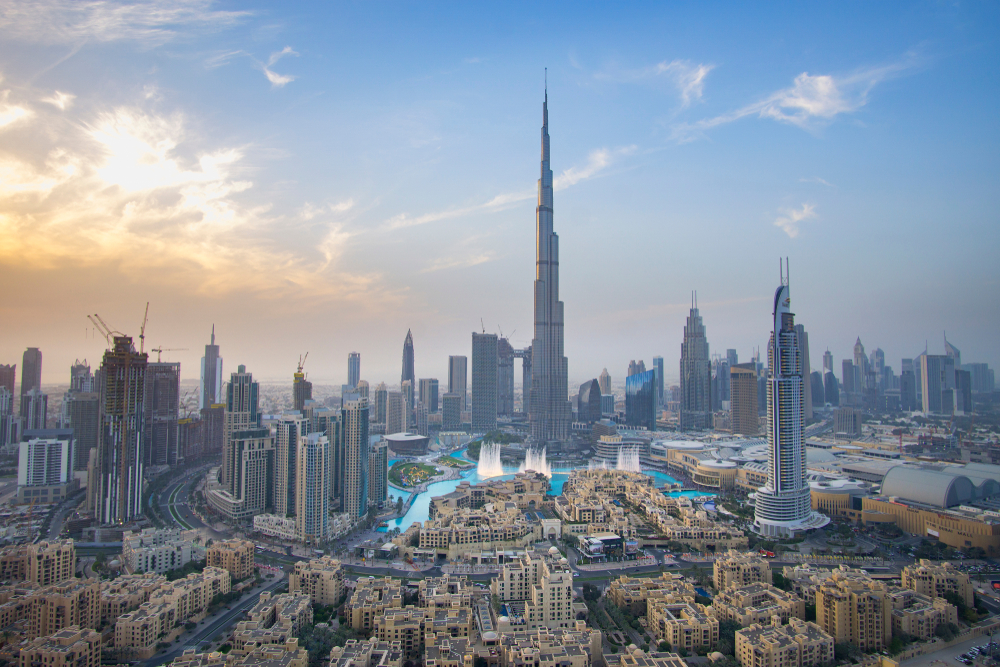GCC states lead gains by Islamic countries on global competitiveness ranking as Malaysia, Indonesia slip
UAE, Malaysia, and Qatar top Islamic economies on the World Economic Forum’s Global Competitiveness ranking for 2019
Countries of the Gulf Cooperation Council (GCC) made huge gains on the annual Global Competitiveness ranking for 2019, released by the World Economic Forum on October 8.
The annual ranking is based on twelve pillars: Institutions; Infrastructure; ICT adoption; Macroeconomic stability; Health; Skills; Product market; Labour market; Financial system; Market size; Business dynamism; and Innovation capability.
This year, Singapore overtook the United States to be the world’s most competitive economy.
UAE, which leads Muslim-majority countries on the ranking, climbed two places to rank twenty-fifth, according to the report that assessed 141 economies.
WEF said the UAE made “significant improvements” on ICT adoption (2nd place), and skills (39th). Its transport infrastructure also improved, possibly supported by investments related to Expo 2020, it wrote in the study.
“Further, the financial system is well-developed (73.7 points, 31st), and it may offer further opportunities to invest in equities (39th) and insurance products (71st), while the banking sector is still deleveraging and absorbing non-performing loans (83rd),” said the study.
It pointed out that UAE’s labour market (34th place) could be further improved by striking a better balance between flexibility (22nd), workers’ rights (116th) and women’s participation (109th).
Among the Arab Gulf countries, Qatar trails the UAE, improving by one place to twenty-ninth, followed by Saudi Arabia that rose three rungs to thirty-sixth.
“The determination of Saudi Arabia to initiate a process towards structural transformation of its economy is mostly visible in terms of ICT adoption (38th), a pillar where the country has gained 9.4 points,” wrote WEF.
“Underpinning this result is the rapid deployment of broadband technology (subscriptions to broadband internet have increased from 90 to 111 per 100 people) and a significant increase in internet users (+18.4%, 13th),” it added.
However, the study pointed out that Saudi Arabia’s business dynamism (109th) is still limited by regulations that slow the entry and exit of new companies.
The biggest gainers for the GCC were Bahrain, which reached forty-fifth after rising five places, and Kuwait is forty-sixth after leaping eight rungs.
Only Oman slipped among the six-member GCC, falling six places to number fifty-three.
TOP 10 ISLAMIC ECONOMIES ON WEF GLOBAL COMPETITIVENESS RANKING 2019
| ECONOMY | RANKING | CHANGE FROM 2018 | SCORE | |
| 1 | UAE | 25 | +2 | 75 |
| 2 | Malaysia | 27 | -2 | 74.6 |
| 3 | Qatar | 29 | +1 | 72.9 |
| 4 | Saudi Arabia | 36 | +3 | 70 |
| 5 | Bahrain | 45 | +5 | 65.4 |
| 6 | Kuwait | 46 | +8 | 65.1 |
| 7 | Indonesia | 50 | -5 | 64.6 |
| 8 | Oman | 53 | -6 | 63.6 |
| 9 | Kazakhstan | 55 | +4 | 62.9 |
| 10 | Brunei Darussalam | 56 | +6 | 62.8 |
Table compiled by Salaam Gateway
MALAYSIA, INDONESIA
Southeast Asian Islamic economies Malaysia and Indonesia both slipped.
Malaysia, which is second to UAE among Muslim-majority nations, went down two places to twenty-seven, and Indonesia tumbled five rungs to fiftieth.
Malaysia’s strengths are its macroeconomic stability (35th) and financial system (15th) but its overall ranking was brought down by low scores in innovation capability (55 points, 30th) and product market (65 points, 20th).
WEF said Indonesia’s main strengths are its market size (7th) and macroeconomic stability (54th). However, its innovation capacity (74th) remains limited but is increasing, said the report.
Notable gainers of the member states of the Organisation of Islamic Cooperation (OIC) include Azerbaijan, which rose eleven places to fifty-eight, and Brunei climbed six places to fifty-six.
Notable biggest losers among OIC countries are Iran, down ten places to ninety-nine, and Lebanon tumbled eight rungs down to eighty-eight.
Copyright SalaamGateway.com 2019 All Rights Reserved
